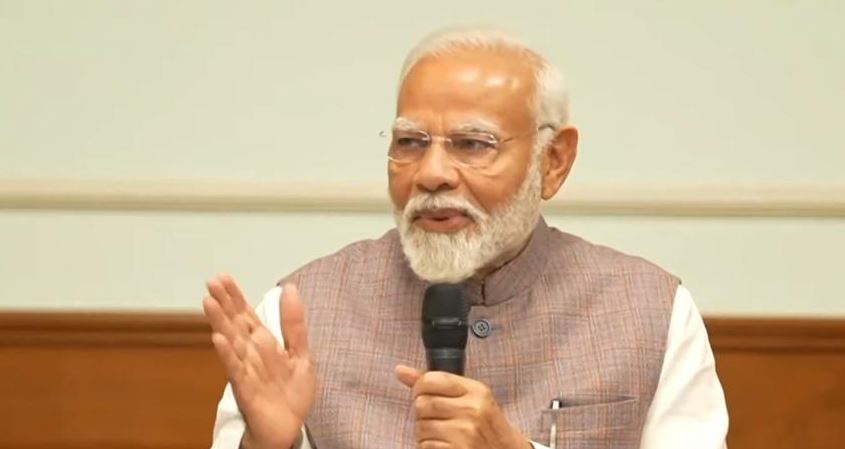India’s Prime Minister Modi Blasts Pakistan for Using Terrorism as a Strategy
In a pointed address on July 26, 2024, Indian Prime Minister Narendra Modi accused Pakistan of employing terrorism and proxy warfare as tactics to maintain its geopolitical relevance. This stern rebuke came amidst heightened tensions between the two nuclear-armed South Asian neighbors, which have historically struggled with a contentious relationship.
Pakistan’s Use of Terrorism and Proxy Warfare
Modi’s remarks were delivered during an event commemorating the 25th anniversary of the Kargil conflict—a short but intense military engagement between India and Pakistan over the disputed Himalayan region. The conflict, along with previous wars between the two nations, underscores the persistent volatility in their relations. Modi’s comments were made against a backdrop of ongoing militant attacks in the Jammu region of Jammu and Kashmir, resulting in the deaths of several Indian soldiers this year.
According to Modi, Pakistan’s reliance on terrorism and proxy warfare has become a cornerstone of its strategy to remain relevant on the global stage. He labeled these efforts as “unholy plans” destined to fail, asserting that Pakistan’s tactics have only resulted in repeated humiliation. “Our brave forces will squash terrorism; the enemy will be given a befitting reply,” Modi declared. This rhetoric underscores India’s resolve to counteract what it perceives as destabilizing actions by Pakistan.
Diplomatic Tensions and Historical Context
The Indian-Pakistani relationship has been fraught with discord for decades, particularly concerning the region of Kashmir—a territory both nations claim in full but administer in parts. India accuses Pakistan of supporting Islamist militants in Kashmir, which Pakistan denies, claiming it only offers diplomatic and moral support to the region’s residents seeking self-determination.
The diplomatic friction between the two countries reached new heights in August 2019 when India abrogated Kashmir’s special status, leading to a downgrading of diplomatic ties. This move was met with sharp criticism from Pakistan and resulted in reciprocal measures that have largely frozen bilateral relations.
The situation further deteriorated following a suicide bombing of an Indian military convoy in Kashmir, which India traced to Pakistan-based militants. This incident prompted India to conduct an airstrike on what it claimed was a militant base in Pakistan. In retaliation, Pakistan later accused Indian agents of involvement in killings on its soil—accusations that India dismissed as false.
Current Diplomatic Stalemate
As of now, the diplomatic landscape between India and Pakistan remains largely stagnant. Despite various attempts to address cross-border terrorism and improve relations, significant obstacles persist. Indian Foreign Minister Subrahmanyam Jaishankar emphasized last month that a resolution to cross-border terrorism is essential, stating that such tactics cannot be part of a constructive neighborly policy.
The ongoing discord reflects a broader pattern of strained interactions, with sporadic attempts at dialogue often overshadowed by acts of aggression and mutual accusations. The entrenched positions of both nations suggest that the path to a durable resolution remains fraught with challenges.
Summary:
Indian Prime Minister Narendra Modi has condemned Pakistan for using terrorism and proxy warfare as a strategy to stay relevant, accusing these tactics of causing repeated humiliation. Modi’s comments, made during a commemoration of the Kargil conflict, highlight the ongoing tensions between the two nations, exacerbated by recent militant attacks and historical grievances. Diplomatic relations between India and Pakistan remain fraught, with little progress towards resolving underlying issues.
Table of Key Learning Points:
| Key Learning Point | Description |
|---|---|
| Accusations of Terrorism | Modi accused Pakistan of using terrorism and proxy warfare to maintain geopolitical relevance. |
| Historical Context | The Kargil conflict and Kashmir dispute form a backdrop to ongoing tensions between the two nations. |
| Diplomatic Relations | India and Pakistan’s diplomatic ties have been strained, with reciprocal actions contributing to the stalemate. |
| Recent Developments | Recent militant attacks and accusations have further strained relations, with no clear resolution in sight. |
Soumya Smruti Sahoo is a seasoned journalist with extensive experience in both international and Indian news writing. With a sharp analytical mind and a dedication to uncovering the truth, Soumya has built a reputation for delivering in-depth, well-researched articles that provide readers with a clear understanding of complex global and domestic issues. Her work reflects a deep commitment to journalistic integrity, making her a trusted source for accurate and insightful news coverage.



